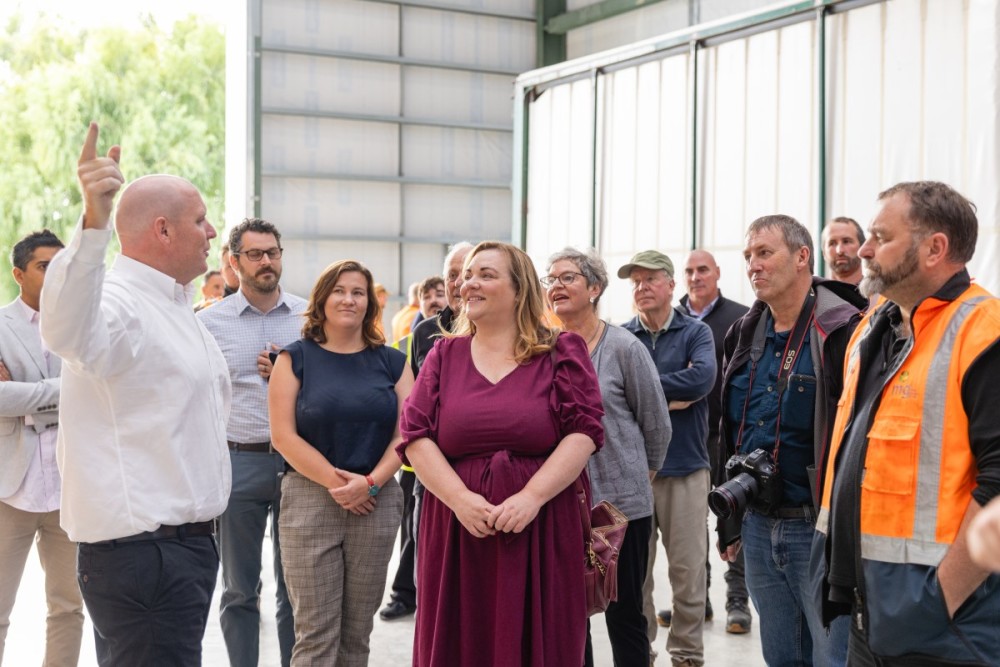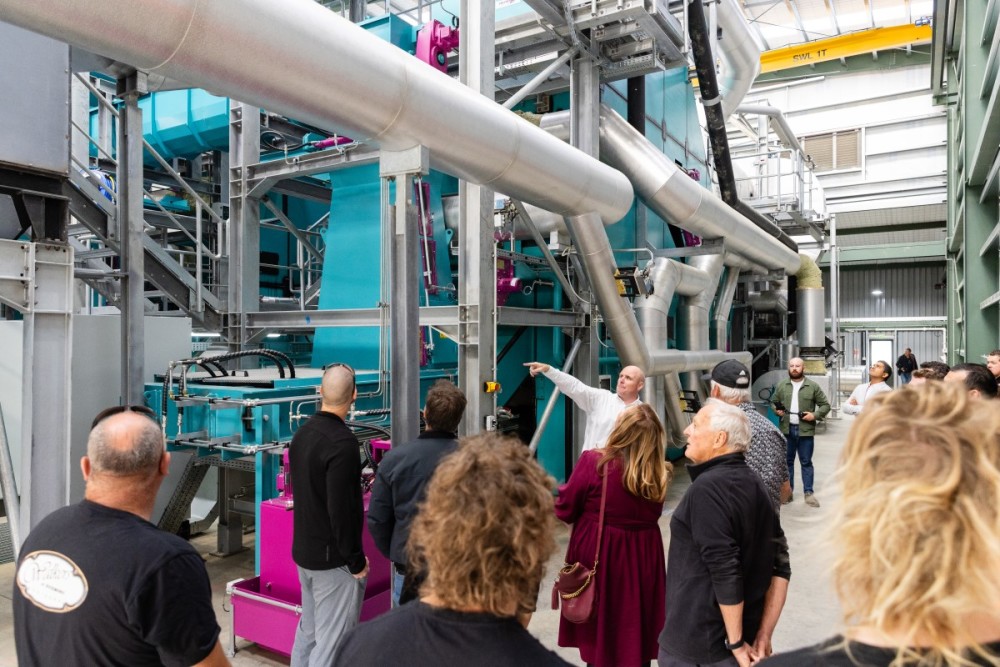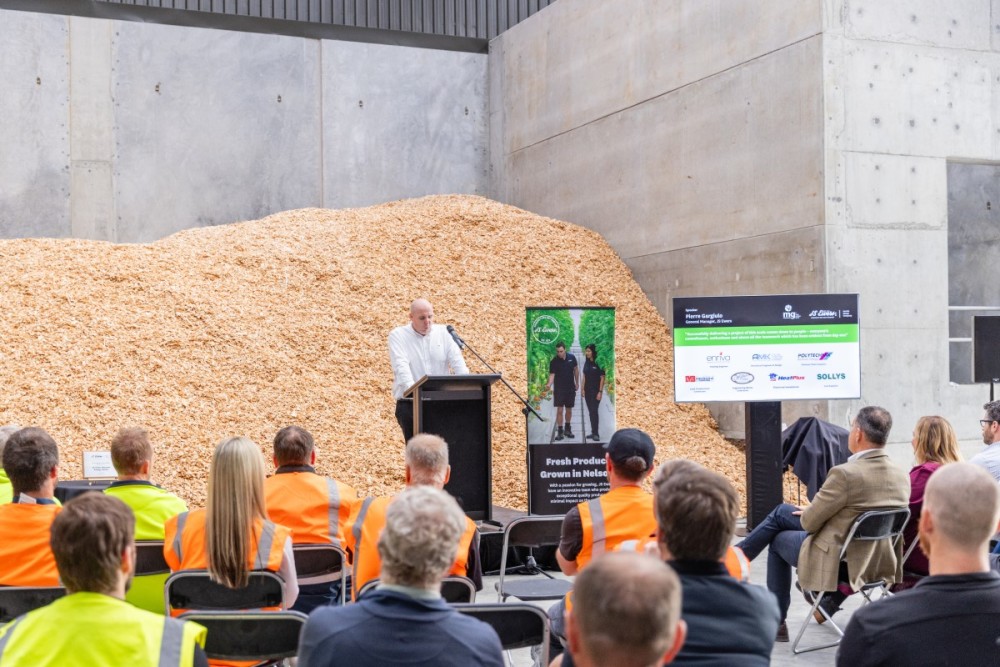A state-of-the-art biomass plant, which will help reduce on-farm emissions by 98%, has been officially opened at Nelson growing operation, JS Ewers.
The event was attended by a number of key stakeholders including local Nelson MP, Rachel Boyack, representatives from the Tasman District Council, suppliers, customers and other local people with close links to the business.
The new boiler, which runs on a wood residue sourced from local forests, will generate all the heating required for 12 hectares of glasshouse, which grow tomatoes, capsicums and eggplant, eliminating the need for burning coal.
The project was supported with industrial co-funding from EECA (Energy Efficiency and Conservation Authority).
The process, which took nearly five years, was complex, involving more than simply installing the biomass boiler. It was a staged approach, including an earlier project to establish a large ring-main system, which is a network of large pipes carrying hot water throughout the site, along with a buffer tank used to store two million litres of water. There was also the physical construction of the large boiler shed, the fuel storage and handling system, as well as the connection to the existing plant.
“Our decarbonisation strategy saw us adopt a number of initiatives over the past seven years, with the completion of the biomass boiler the largest and most complex part of the plan,” said JS Ewers GM, Pierre Gargiulo.
“Feedback from EECA acknowledged the significant steps and investment made by our company. The long-term sustainability strategy was a key factor in securing a portion of co-funding for remaining projects.”
“Like all businesses looking to transition to greener energy, investment needs to be balanced as there are always competing priorities.”
“The EECA partnership has spanned the introduction of thermal screens in 2018, an Energy Transition Accelerator programme in 2020 that helped map a decarbonisation plan and provided the best pathway, the conversion of the smaller boilers to wood pellet and the eventual installation of the large biomass boiler.”
JS Ewers is a wholly owned subsidiary of Market Gardeners Limited, trading as the MG Group, with CEO Peter Hendry saying it was a significant step towards the co-operative’s sustainability ambitions.
“The MG Group has committed to making sustainability a strategic priority for the co-operative,” said MG Group CEO, Peter Hendry. “Across the MG Group we’re looking to continually improve all of our businesses and make sure our operations are as efficient and sustainable as possible.”
“In recent years our market business has invested heavily in moving to more environmentally friendly refrigeration systems and in a large solar project, however, the completion of the biomass boiler at JS Ewers is the single most significant project for the MG Group, removing approximately 27,000 tonnes of emissions annually."
“When you add together the emissions reductions from all projects completed across the JS Ewers site, there’s a 98% reduction in on-farm CO2 emissions.”
“This project is not only a positive step forward for JS Ewers but for the industry more generally. A pleasing part of the project has been sharing our journey and learnings with other growers and hosting the likes of Tomatoes NZ and other interested growers on-site.”


